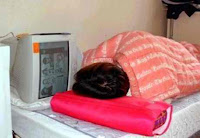"Special Interest" or Obsessive-Compulsive Disorder?

"How do I know whether or not my child's 'special interest' is actually an Obsessive-Compulsive Disorder?" The term “Obsessive-Compulsive Disorder” (OCD) is a clinical diagnosis that only a doctor can make. Many Aspergers and high functioning autistic (HFA) kids also share an OCD diagnosis, but the Diagnostic and Statistical Manual definition for Aspergers and HFA calls for very OCD-like behavior as one criterion. It can be very confusing for parents, and even diagnosticians, as to whether or not the “special interest” is simply an Aspergers or HFA trait, or part of another diagnosis (in this case, OCD). So, when is a “special interest” simply a “special interest,” and when is it legitimate OCD? Obsessive-compulsive disorder is a chronic illness, a type of anxiety disorder characterized by obsessive thoughts and compulsive behavior. Unlike other anxiety disorders, the child knows that such thoughts and behaviors are irrational and silly, but cannot...




